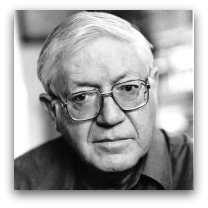 Peter Porter, who died recently in London at 81, will be widely mourned. A man of trenchant views about many things and many people, he could also be the soul of courtesy, and he was a great encourager of poets younger than himself.
Peter Porter, who died recently in London at 81, will be widely mourned. A man of trenchant views about many things and many people, he could also be the soul of courtesy, and he was a great encourager of poets younger than himself.
He published 17 books of poetry, the bulk of them written in the London where he lived for most of his life, and out of which he had made a country of the mind. Its vices and virtues, its constant features and its mutability, were there to be inspected and eventually portrayed every time he strode, usually briskly, about the city.
And brisk was the word for the earliest published poems. They had things in common with the satirical writing much in vogue at that time, but were also marked by an intellectual fertility and a depth of feeling which were all Porter's own, and which remained with him to the end. When you read one of his poems you are likely to be struck by a sense that for all its formal command, more and more is waiting to press through. It is analogous with much of that music which, he said, was his first love.
I have sometimes thought Porter's departure from Brisbane for London in the early '60s was a heading for the capital of the English language. There being no such place, this cannot be true. But what he did find there was a footing in the language which, on the one hand, was strengthened by the great deal of reviewing and the like which he did, and a prompting of his imagination, which reached back to encompass Australian life in quite distinctive terms. People who never met Porter are among those who have reason to be grateful that this last should be so.
Feed and clothe Peter Porter and lodge him in a library attached to a venue for music, and remarkable things would happen. But that 'footing in language' mentioned earlier would also take new force from his exposure to the languages spoken by the visual arts, most particularly in Italy. There can be few non-believers who have hunted so assiduously and so reflectively through churches in Rome and elsewhere: and few of whatever affection who made cats or sparrows in Italian cities matters of cardinal attention. He was firmly of the view that Piero della Francesca's Resurrection in San Sepolcro is the greatest of religious painting: to dissidents, it might be pointed out that Porter had done his homework.
Karl Rahner once wrote an eloquent piece about the affair of poetry, but gave no example of a poem. This is less than ideal behaviour. Here is most of Porter's 'My Old Cat Dances', from English Subtitles (1981):
He has conceived of a Republic of Mice
and a door through the fire,
parables of the reinstatement
of his balls. But not this night.
Isn't there a storm in the light bulb,
condors circling the kittens' meals
on the television screen?
He heard once that people wearied of
each other to escape unhappiness ...
Moving one paw out and yawning,
he closes his eyes. Everywhere
people are in despair. And he is dancing.
More than one cherished cat's comings and goings is attended to in Porter's poems. They are however transformed — always poetry's business. We do not ordinarily think of these largely mysterious creatures as encoding our own complexities, but insofar as we do think that poetry can be revelatory, we have to be open to that possibility. Porter, who had no time for bluffing in the poetry of others, was the last one to try it in his own work. His poetry is often challenging: but then, what else are we?
Peter Steele SJ is Professor Emeritus in the English Department at the University of Melbourne. His most recent collection of poetry is White Knight with Beebox: New and Selected Poems (John Leonard Press 2008).